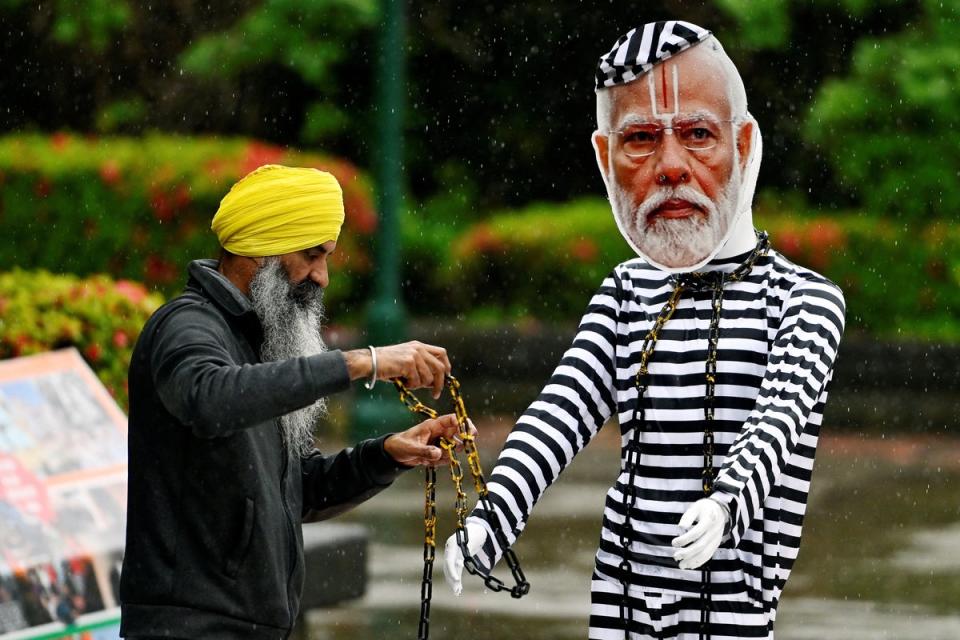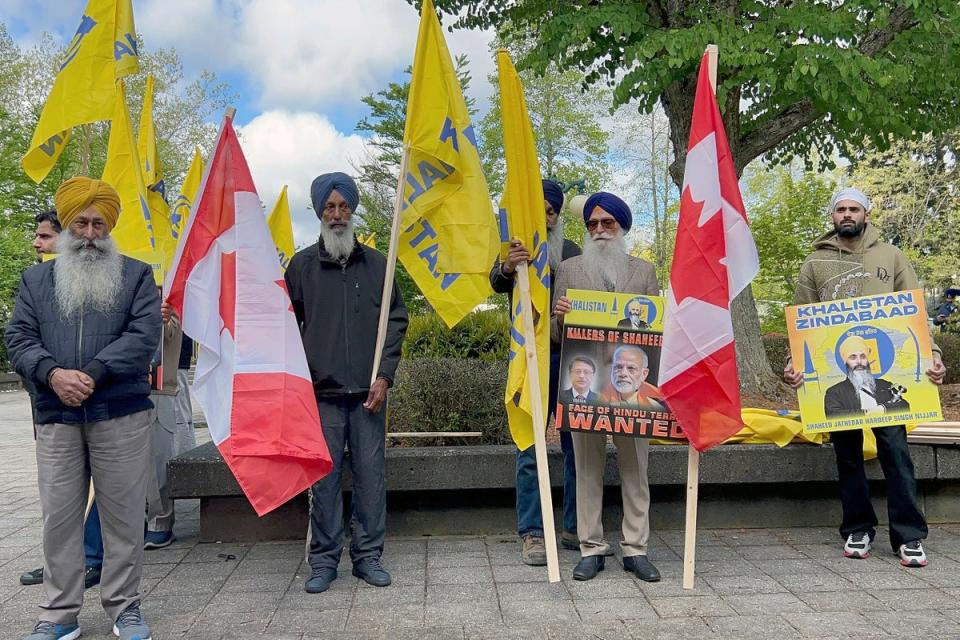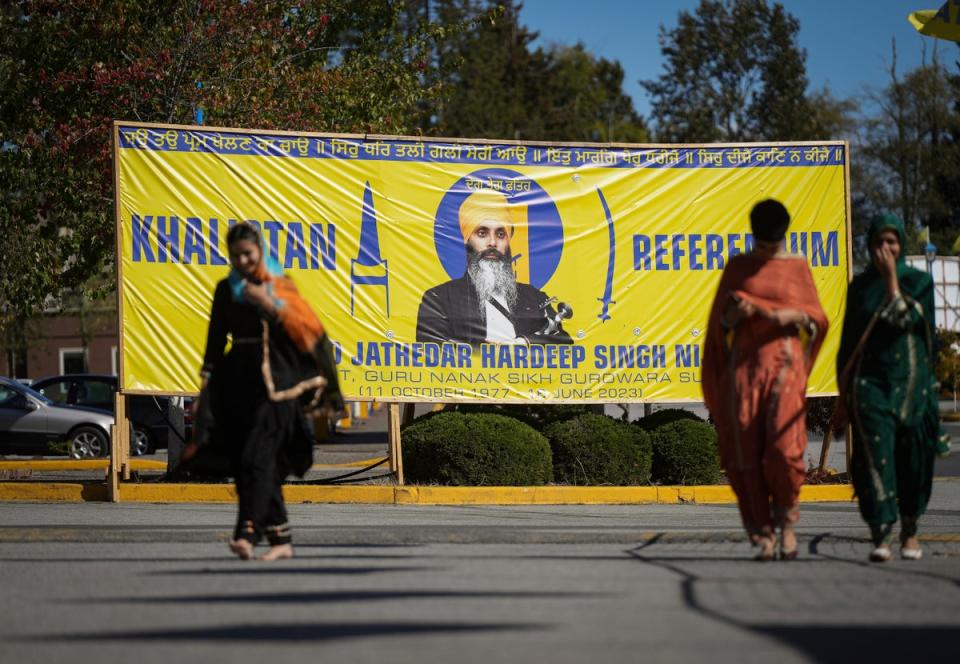India second biggest foreign threat to Canada after China, says government panel
India is the second biggest foreign threat to Canada after China, a damning new report concluded nine months after Justin Trudeau accused Delhi of involvement in the assassination of a Canadian Sikh citizen.
The report was released by the National Security and Intelligence Committee of Parliamentarians (NSICOP), a cross-party group of MPs and senators in Canada, and tabled in parliament with redactions this week.
The report said India has “emerged as the second-most significant foreign interference threat to Canada’s democratic institutions and processes”, dislodging Russia.
It noted that “foreign interference efforts have slowly increased” and its efforts “extended beyond countering what is perceived as pro-Khalistani efforts in Canada”.
It alleged that India was "interfering in Canadian democratic processes and institutions, including through the targeting of Canadian politicians, ethnic media, and Indo-Canadian ethnocultural communities".
Diplomatic ties between India and Canada have plummeted to its lowest in years after Mr Trudeau told the House of Commons last fall that security agencies have "credible allegations of a potential link between agents of the government of India" and the killing of a Canadian citizen.

He alleged Indian government’s hand in the killing of Hardeep Singh Nijjar, 45, a Sikh separatist leader wanted in India. He was shot dead outside a gurdwara in Surrey, BC, in June of last year.
India has denied the allegations as “absurd” and demanded evidence for its allegations.
So far four men have now been charged in that killing by the Canadian courts.
A Sikh secessionist movement – known as the Khalistan movement – is at the heart of longstanding tensions between the two countries as Ottawa had one of the largest diaspora of Sikh immigrants from India’s Punjab. The movement calls for a separate homeland for Sikhs within India, claiming years of persecution in the country.

India has blamed Canada for harbouring people carrying out what it called anti-India activities as the Sikh movement group regularly holds referendums and rallies in the country.
The high-level Canadian parliamentary panel report said some of the Canadian MPs "proactively provided confidential information to Indian officials".
“Some elected officials, however, began wittingly assisting foreign state actors soon after their election,” it added, redacting the names and identities.
The report, which called China the biggest threat, said while India’s foreign interference efforts are not as widespread as Beijing, Delhi’s activities are also "of significant concern”.
"India seeks to cultivate relationships with a variety of witting and unwitting individuals across Canadian society with the intent of inappropriately exerting India’s influence across all orders of government, particularly to stifle or discredit criticism of the Government of India,” it said.
The report explained how China used WeChat, a Chinese social media platform similar to WhatsApp, to spread "misleading narratives" about an MP.

"India also demonstrated the intent and capability to engage in this type of foreign interference through media manipulation," the report said.
Reacting to the report, Mr Trudeau said on Tuesday: “This government is taking this very seriously.”
On Thursday, Mr Trudeau’s office congratulated Narendra Modi on his third consecutive term in office while the US and UK leaders held calls with the Indian leader.
The Canadian prime minister urged the Indian government to advance relationship achored to “human rights, diversity, and the rule of law”.
“Congratulations to Indian Prime Minister Narendra Modi on his electoral victory. Canada stands ready to work with his government to advance the relationship between our nations’ peoples –anchored to human rights, diversity, and the rule of law,” the statement said.

